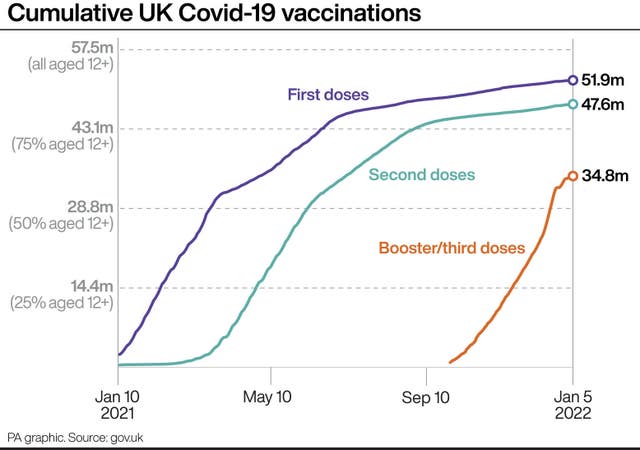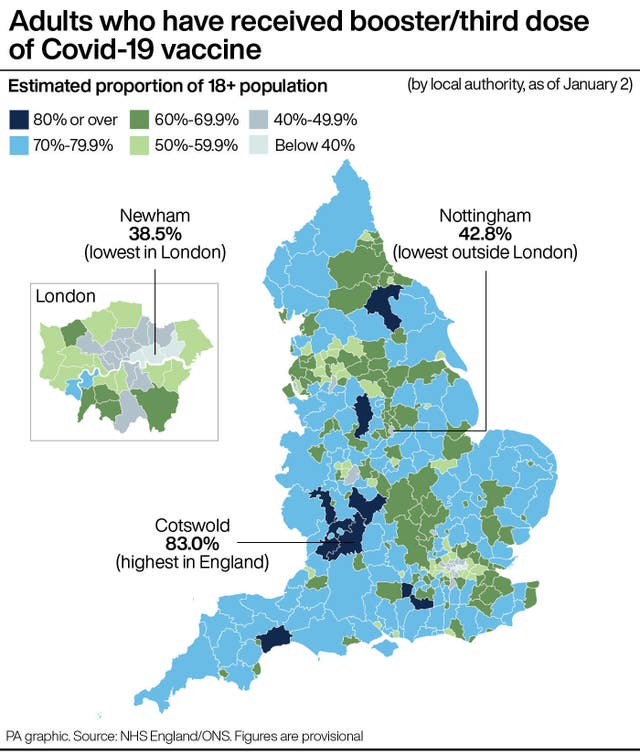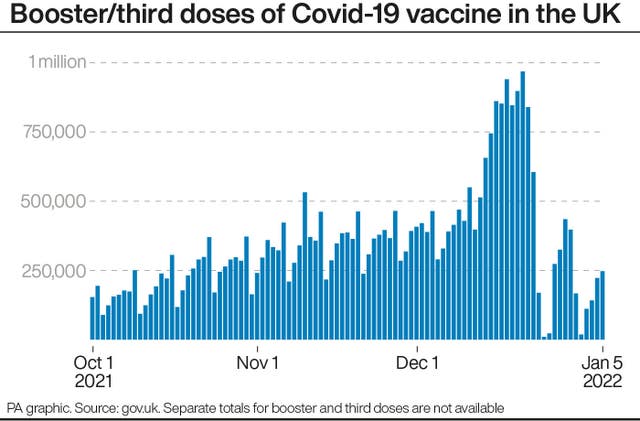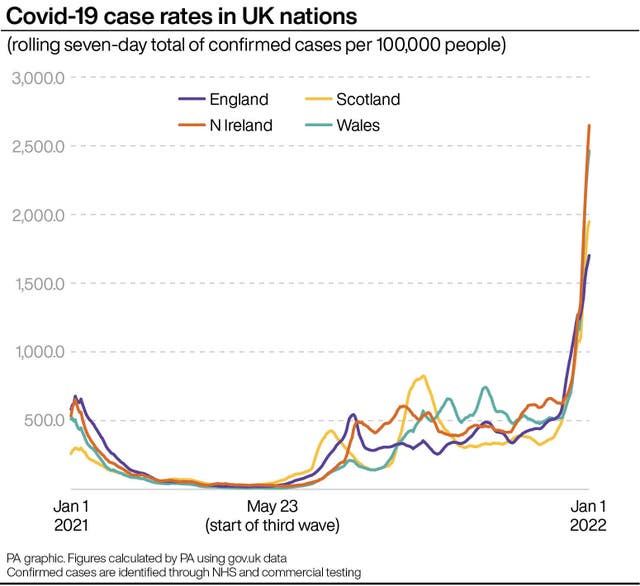Why are millions of people not yet vaccinated against coronavirus?
Almost nine million adults have not yet had their booster, Prime Minister Boris Johnson said this week.

More than a year since the first coronavirus vaccine doses went into arms, significant numbers remain unvaccinated.
Why are some people still hesitant, and what is happening to further increase take up?
-How many people have not been vaccinated?
An estimated 4.5 million people aged 18 and over in the UK have not had a first dose, and more than six million people are not double jabbed, according to figures from the UK’s health agencies.

Almost nine million eligible adults have not yet had their booster, Prime Minister Boris Johnson said this week.
It is not true to say that every one of these adults does not want to get their booster – millions of adults who have contracted coronavirus in the past few weeks will be unable to have it until 28 days after they test positive.
-Which groups are most likely to be hesitant?
A survey of almost 5,000 UK adults, from the University of Stirling in November, found that reluctance to have the vaccine was a particular issue in non-white British ethnic groups, younger adults and those with lower levels of education.

There have also been recent efforts to encourage more pregnant women to get the jab.
Campaigners say the narrative around hesitancy has been “damaging” and that it is important not to stigmatise particular groups who may be more likely to have concerns.
-What are their reasons?
Chief Medical Officer Professor Sir Chris Whitty said this week people have three main questions about the vaccine – is it necessary, will it work and concerns about side effects. There is then the question of convenience.

The main concerns of people hesitant about getting jabbed are around the vaccines being safe or necessary, according to qualitative research from the Office for National Statistics (ONS) last year.
The ONS said most people who were uncertain or unwilling had given “considerable thought” to the prospect and were not anti-vaxxers or conspiracy theorists.
Key concerns were the speed at which vaccines were developed and feared side effects including, for some, a potential impact on their fertility.
Others will have legitimate medical exemptions, or cannot yet get a dose because they have contracted coronavirus in the last 28 days.
-Is everyone who has not yet had a jab an anti-vaxxer?
No.
Sir Chris said “the great majority” of unvaccinated people in intensive care are “not anti-vaxxers in the ordinary sense” but have been taken advantage of by those seeking to misinform them online.
He said “misinformation” about potential side effects from jabs is fuelling fears about whether vaccination is necessary or effective.

Previous studies have also suggested many people are not fixed in their positions.
Research last summer by King’s College London and the University of Bristol found that half of those who previously said they would not be vaccinated had gone on to get jabbed.
A similar ONS study found that 44% of people who were previously hesitant had since been vaccinated.
Experts say this points to the need to continue positive, non-judgmental messaging as they are persuadable.
The ONS research found that two thirds of previously hesitant people who had since been vaccinated said they had been motivated by wanting restrictions to ease and life to return to normal.
-What is the Government doing to increase take-up?
An NHS action plan has been under way for months, using pop-up clinics at venues like festivals, theme parks, places of worship and pharmacies, and information campaigns in partnership with trusted local figures.
The Government is continuing to appeal to people to come forward for their first, second or booster doses.
It has ruled out making jabs compulsory for the general public who are not exempt – already in place for England’s care home staff and due to come into force for frontline NHS and wider social care staff from April.
The PM said he is committed to a “voluntary” approach, amid other countries’ “coercion”.
-What about other countries?
French president Emmanuel Macron enraged critics this week when he used inflammatory language to describe how he would pressure the unvaccinated to get jabs.
The Government is planning to exclude the unvaccinated from places such as restaurants, cinemas, theatres, museums and sports arenas.
Last month, European Commission chief Ursula von der Leyen suggested that mandatory jabs should be considered across the EU.
This week the Italian government has approved a measure requiring people older than 50 to be vaccinated against coronavirus.
Draft legislation to introduce a universal vaccine mandate has been drawn up in Austria, which the Government hopes will take effect next month.





